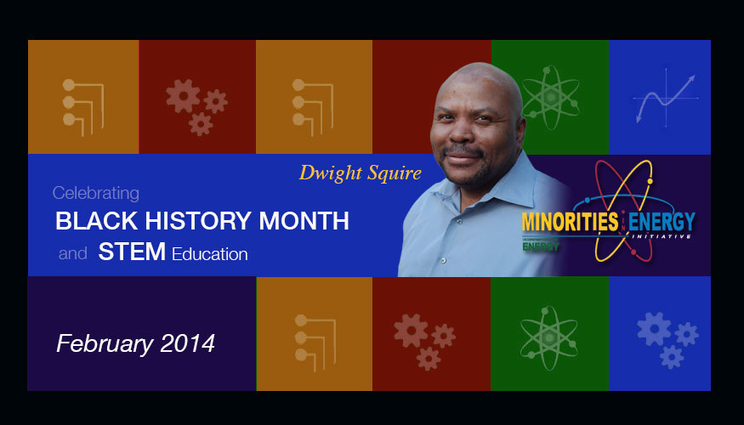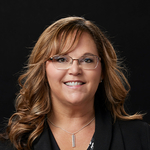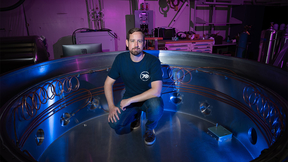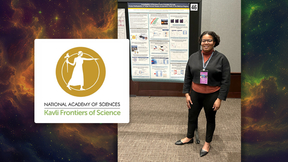Q&A with Dwight Squire: Celebrating Black History Month and STEM
 (Download Image)
In honor of Black History Month, Livermore Laboratory employee Dwight Squire shares his background and perspective on engaging underrepresented groups in science, technology, engineering and mathematics (STEM) education.
(Download Image)
In honor of Black History Month, Livermore Laboratory employee Dwight Squire shares his background and perspective on engaging underrepresented groups in science, technology, engineering and mathematics (STEM) education.
__________
As a champion for the Department of Energy's Minorities in Energy Initiative, Tony Baylis, director of the Office of Strategic Diversity Programs, is aiding the initiative by calling attention to the critical need for greater diversity in STEM professions and education.
Key individuals will be featured throughout the month of February in a Q&A series with the overarching theme "Supporting Diversity in the Sciences and in STEM Education."
The second Q&A in the series features Dwight Squire. Squire has worked at LLNL since May 1992. He is a mechanical engineer working as the engineering and maintenance manager for the Weapons and Complex Integration (WCI) Directorate. In this role, Squire manages and provides oversight of cost-effective and regulatory/code-compliant engineering, design, installation and maintenance of essential programmatic and plant equipment within all WCI facilities.
Q&A with Dwight Squire:
Q: Why did you choose to work at LLNL?
A: I had some very memorable experiences as a summer student at LLNL in 1986, 1987 and 1989, which attracted me to pursue a mechanical engineering career at the Laboratory. I was drawn to LLNL for the college campus atmosphere, golden opportunities to work on top notch R&D projects and the excellent benefits package (at the time).
Q: What is your educational background?
A: I received both my bachelor's and master's degree from North Carolina A&T State University in 1989 and 1992, respectively.
Q: What inspired you to work in a STEM area?
A: My love for cars and my desire to understand how they are built and operated inspired me to work in the STEM area. In my seventh-grade vocational education class, I learned that I needed to become a mechanical engineer in order to design cars and understand how they operate. As I got older, the multitude of opportunities in the mechanical engineering field kept me engaged and stimulated.
Q: What excites you about your work at LLNL?
A: The work we do is for the betterment, safety and security of our communities and the country.
Q: What is the most helpful tip or insight that anyone has given you about working at the Lab?
A: Spend the first five years pursuing as many different projects as possible before entering into or selecting a specialized area to ensure you know what it is you really want to choose for your career.
Q: How can our country engage more underrepresented groups in STEM?
A: I think the general approach has been to show underrepresented groups (and others) what STEM has to offer, which could be overwhelming at first glance. I propose an approach where a STEM program (or curriculum) is geared toward helping a student pursue his or her passion. For example, if I want to be an athlete or a dancer, understanding physics could give me an edge to become better than my competitor or my natural talent. If I want to be an entrepreneur, understanding math and accounting could ensure someone hired to manage my finances doesn't rob me blind. Also, with entrepreneurship, comes an element (or elements) of STEM. First, learn a student's passion, then integrate or tailor STEM to match, which requires a flexible/moldable program.
Q: What do you like to do in your spare time? What are your hobbies?
A: I like to lift weights, take scenic photos, go on short road trips and read spiritual and self-help books.
To view the first Q&A of the series highlighting Kevin Griffin visit the Web.
Contact
 Carrie L Martin
Carrie L Martin
[email protected]
(925) 424-4715
Related Links
STEM educationBlack History Timeline
Tags
Academic EngagementSTEM
Featured Articles







